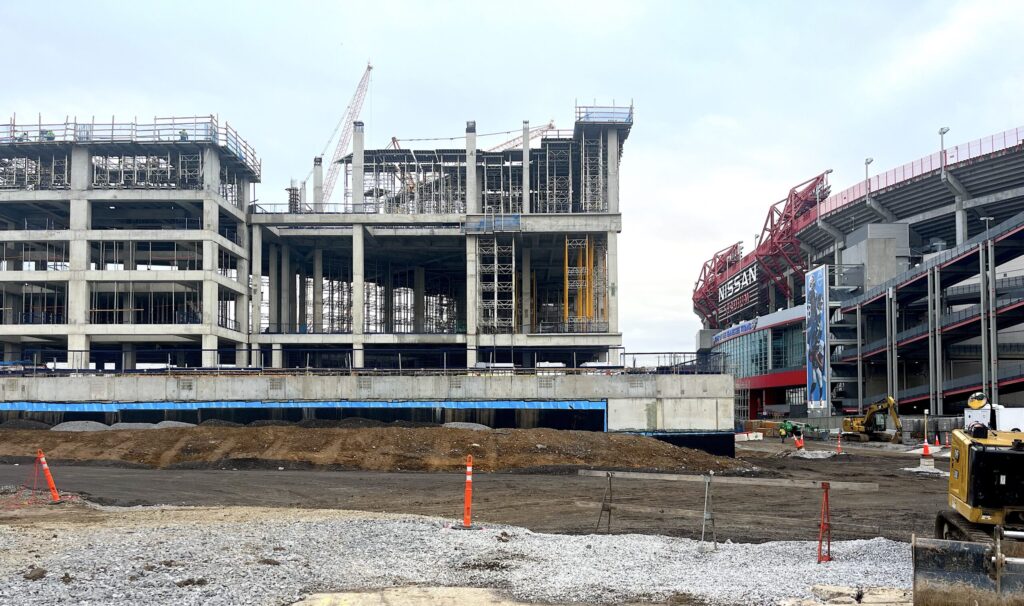
Less than 100 feet from the existing Tennessee Titans stadium, the concrete structure of the “new” Nissan Stadium is rising.
What will be a domed stadium only broke ground earlier this year, but the progress is obvious to anyone who passes by. With around 700,000 hours worked onsite this year, the stadium is inching towards its goal of completion in 2027.
“It’s quite impressive,” stadium project executive Kellen DeCoursey told the Metro Sports Authority in December. “We’re racing through the concrete to get to the start of steel, which we should start to see in about two months.”
Plans are also in the works for a mechanical demolition of the existing stadium, though that won’t take place for more than two years.
Though construction is well on its way, early conceptions of the project were not as smooth. The proposal faced significant pushback from the community, and the Metro Council only approved the deal after a seven-hour public hearing.
The stadium is also tied to another major city: redevelopment of the East Bank area. This project is led by councilmember-turned-Chief Development Officer, Bob Mendes — initially a major opponent of the stadium deal. It will also be overseen by a new East Bank Development Authority, which required approval from the state legislature, as well as Nashville’s Metro Council. The body will consist of nine members — two who were appointed by the Metro Council in early November and five selected by Mayor Freddie O’Connell in December. The final two are the speakers of the state House and Senate or their designees. The group has yet to meet, though some members are already thinking about the work.
That includes Nate Carter, the director of workforce and employment for Stand Up Nashville, who was nominated by the Metro Council. He says the execution of the East Bank project will involve careful planning.
“A lot of people say that they didn’t want to turn it into another honky tonk. That’s one of their biggest concerns,” Carter says. “They don’t want it to turn into another Broadway downtown.”
Carter was one of many who were highly critical of the stadium deal when it first went public. He says that, as a member of the authority, he plans to prioritize transparency.
“A lot of deals in the city have been done behind closed doors where people feel like, you know, their voices are not being heard,” Carter says. “We need to do whatever we need to do to let the community know.”
While much less visible than the stadium’s construction progress, the broader East Bank development is inching along. Mendes has led the effort, helping the city reach an agreement with the master developer, the Fallon Company, to develop the first 30 acres of the project (in total, Metro controls over 100 acres on the East Bank).
That early development will include a “mixed-income” neighborhood, with 1,550 housing units — 45% of which will be affordable (and are required to remain so for the duration of the 99-year lease).
More recently, the council approved the mayor’s $527 million capital spending plan, which directs $33.5 million toward East Bank land acquisition and infrastructure.

